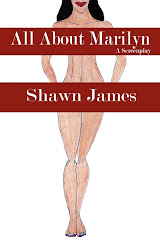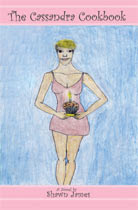Thoughts on Tyler Perry
Tyler Perry is a very gifted man. I respect what he’s trying to do as a playwright and a film-maker.
I just don’t like how he’s doing it.
My issues with Perry regarding his films are his lack craft when it comes to screenwriting. What’s worse is he’s making no efforts to improve the quality of his writing. Almost ten films in and he still hasn’t grown enough in his craft to effectively tell a story on the screen. After seeing him make a series of disastrous mistakes in the recent Why Did I Get Married Too I can no longer support his films.
Perry continues uses a stage play model for his films and this is hampering the quality of his work as a film-maker. Using the stage model for storytelling in his screenplays slows down the pace of his films and prevents him from effectively telling a story onscreen. Screen and stage writing are two different performance mediums; each has its own unique structures and form for storytelling. Perry needs to learn the basics about screenwriting before making another film.
Perry’s first mistake in writing his screenplays is telling instead of showing. On stage, characters can tell the audience about fine ladies going to church, Drug dealers selling crack in the neighborhood or a woman being slapped. On film, these expository sequences DRAG a film to a CRAWL. It’s BORING.
For film to have an IMPACT on the audience they need to SEE the church ladies in THEIR SUNDAY BEST PASTEL SUITS headed up the steps of the FIRST BAPTIST CHURCH, the audience needs to SEE the CRACK DEALERS ON THE CORNER OF FIFTH STREET PEDDLING ROCK. They need to SEE the WIFE BEING BACKHANDED BY HER HUSBAND FOR BURNING THE DAMN GRITS AGAIN.
Films are about ACTION. They’re about SHOWING what’s going on NOW. The actions the people take in a screenplay NOW define their CHARACTER. On film, CHARACTER is what people DO not what they SAY. There’s no need to TELL the audience what’s going on, SHOW THEM.
Second, Perry’s plots and storylines are weak. Again, this is because he insists on using a stage model for the screen. In a stage play a writer can have several storylines going on at once. However, on film, the main storyline has to get started FIRST, and the SUBPLOTS later. Movie audiences need to know immediately: Who is the main character? What do they want? What’s keeping them from getting what they want? And more importantly: WHY SHOULD WE CARE?
In most of Perry’s films there is little to no focus on the main character in the first ten minutes of the film. We meet supporting characters like Madea, Joe, Mr. Brown…and then ten or twelve minutes later the main character shows up to start the movie’s primary storyline. This confuses viewers. It prevents the audience from getting to know the main character and caring about their story.
Seriously, Perry needs to introduce us to the main character in the first frame of the film, and let that character show the audience what she wants to achieve BEFORE bringing in Madea, Joe or Mr. Brown.
Third, Perry’s dialogue doesn’t work on the screen. His characters talk too much, and in many cases they talk about nothing. In a stage play dialogue can say exactly what they’re doing, but in a screenplay it’s called “on the nose” and it’s a sign of a bad screenwriting.
In a screenplay, dialogue has more than one purpose. Dialogue in a screenplay not only advances the plot, but it reveals the characters to the audience. Dialogue shows the audience a character’s personality, their “voice”; the words they use have a subtext. The audience has to read between the lines of what they’re saying to get to know them and what they’re really about.
Fourth, Perry doesn’t develop his characters into three-dimensional people. In most of his films characters are either one extreme, good or bad. This one-dimensional portrayal of people turns most of the characters in his films into caricatures, not real people the audience can identify with and relate to on a human level. In real life people aren’t black or white, good or bad, they’re shades of gray. And it’s these various shades of gray that create depth, texture, and layers and give characters a unique complexity that intrigue viewers.
Because of this lack of complexity in Perry’s characters, the people in his movies come out of the story at the conclusion just like they went in at the beginning. No one ever learns a lesson from their experiences, issues and conflicts are never really dealt with, and the audience never sees anyone growing into a stronger person from their ordeals. In most Perry movies, the heroine never really does anything to help herself; the man of their dreams beats the bad guy, sweeps her off her feet, they get married and live happily ever after. Real life isn’t that simple.
And neither is life in good movies.
In good films, characters undergo irreversible changes at the climax of the story. These turn of events transforms the characters into people who are totally different than the people who started at the beginning of the film. It makes the audience think about what they’ve seen and drives the writer’s message home.
Now my other series of beefs with Perry are his lack of craft as a filmmaker. His sequences are often clumsy. In his films a series of scenes don’t lead into another sequence of scenes and these transitions prevent the story from being told effectively onscreen.
Perry often shoots his films similar to the way his stage plays are filmed in a “Master Shot”. While a “Master Shot” works well for a stage play, shooting action on film is different. Action in one scene takes place with numerous shots: Pans, close-ups, Cut, smash cuts, A single scene in a movie is made up of twenty or different frames of film, not just one or two. Action is going on all around the viewer, and they need to see it all. Perry needs to invest in a good cinematographer and film editor so his stories have a distinct feel that is clearly Tyler Perry.
Tyler Perry has come a long way, and I respect the brotha for that. But he really needs to take some time to learn more about the craft of screenwriting instead of churning out poorly written and poorly made films for black audiences. Short-term he’s making lots of money on audiences of desperate black moviegoers starved for product by providing a large quantity of movies. But he’s hurting the long-term quality of his brand.
Perry can’t build his studio’s reputation on just films and television series from his stage plays. To expand his business, he needs to further develop his skills and craft. Perry has to transition out of a “stage” mindset into a “screen” mindset. That’s going to require that he learn an entirely new set of skills.
To get in a “screen” mindset I’d suggest Perry read Syd Field’s Screenplay for starters. And Follow it up with Robert Mckee’s Story. Then I’d suggest he read some classic screenplays like Sunset Boulevard, The Hustler, Marty, Big, Chinatown, Summer of ’42, Training Day and Do The Right Thing so he can learn how a good screenplay’s storyline is structured, and how characters are developed.
Instead of insulting Spike Lee, I feel he should listen to the brother’s criticisms. Lee has over 25 years of experience and knows how films work. His movies are classics. His comments about “coonery” are valid. The African-American audience is diverse and there is more than one “black” experience; Perry needs to learn about what his audience wants. Long-term, Perry’s single-minded focus on entertaining the “Southern chitin circuit” with urban stories about downtrodden women won’t help him get the national and international support needed to expand his expand his burgeoning film studio into a competitive media enterprise. To take his business to the next level, he’s going to have to offer audiences something other than Madea.
In addition to hearing Lee out, Perry needs to network and hire other black directors like Debbie Allen, the Hudlin Brothers, the Hughes Brothers, Denzel Washington and F. Gary Gray. Learn some tricks from seasoned cinematographers like Ernest Dickerson. Talk to seasoned screenwriters like Spike Lee and Keenan Ivory Wayans, Robert Townsend and Darryl Roberts. Film-making and screenwriting are crafts. The more he learns from people who have been there, the better quality of films he can provide for the African-American community.






